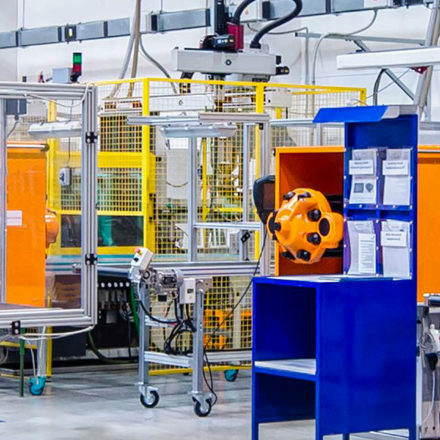Debate continues around the potential for Artificial intelligence (AI) to replace the roles humans have occupied for generations. But can it be a force for good?
AI could contribute more than $20 trillion for the global economy by 2030[1] and the use of generative AI like ChatGPT is proceeding at pace amongst Australian organisations. It has the power to transform both industries and our day-to-day lives.
At King & Wood Mallesons’ 2022 Digital Futures Summit, leading experts and business specialists shared their views on the possibilities that AI and data offer for positive change. KWM partner Bryony Evans was joined by Microsoft Australia Chief Technology Officer Lee Hickin, Commonwealth Bank of Australia (CBA) Chief Decision Scientist Dan Jermyn, Telstra N&IT Executive Dayle Stevens OAM and National Artificial Intelligence Centre Director Stela Solar.
In this post, we round up the key takeaways from their captivating and topical discussion. Watch the full session on demand here.
We are seeing positive use cases across key economic drivers of the Australian market, such as critical import and export industries. The fast and widespread uptake of ChatGPT in the short time since our discussion has undoubtedly prompted many to consider new use cases and the potential for generative AI to create efficiencies at work and home. The surge in interest is prompting a range of legal and ethical issues, including questions around reliability, potential harm, privacy and copyright. ChatGPT isn’t covered here but we are talking with clients about the opportunities and risks – watch this space for our insights.
For now… read on for rich talking points from industry leaders.
- There is significant potential for AI to radically transform society
Data scientists are working with Indigenous nature managers, financial literacy experts and scientists to use powerful AI techniques like ‘unsupervised learning’ in highly supervised ways – for the benefit of people’s health, financial wellbeing, and the environment.
“AI is just as much a domain that is philosophical and creative, as it is technological.” Stela Solar, Director of the National Artificial Intelligence Centre
There are myriad opportunities for AI to transform industries, provide societal benefits, and pave the way for a more equitable future. This is provided it is well-implemented implemented and balanced against some of the areas that need to be specially managed in the use of AI and data (more on this below).
- We need to prioritise data ethics and governance
AI uses existing data – complete with its existing biases – to produce its output, and human judgment is our key strength in overcoming that bias.
The private sector is fast becoming the driving force for the uptake of AI across Australia. It is important that companies proactively establish and operationalise strategies and rules to ensure responsible AI use. These strategies, coupled with responsible governance and accountability measures, are critical to managing the use of AI and reputational implications. You can read more about navigating the ethics of AI here.
Companies should seek to embed multidisciplinary perspectives and varied experiences as part of their AI strategies. Engaging diverse teams to design and implement AI solutions provides an opportunity to intercept biases that have been captured in the data and to stop these biases from being propagated into the future.
“Diversity is actually our opportunity to unshackle from past biases of data”. Stela Solar, Director of the National Artificial Intelligence Centre
- Transparency is key to navigating the ‘digital trust deficit’
AI has an emerging image problem – often referred to as the ‘digital trust deficit’. This deficit has generally arisen in response to unethical or irresponsible utilisation of AI (eg, where an AI solution is perceived to be discriminatory or biased, or where there is an actual or perceived lack of security).
Addressing the trust challenge amongst consumers can be difficult. One way to mitigate against these issues is to increase the transparency around AI implementation.
Everyday consumers are often unaware of the frequency with which they interact with AI and how long AI has been a part of our day-to-day lives. For example, navigation apps have long utilised AI to determine the best routes for users based on a variety of factors (such as traffic, travel patterns, weather conditions and roadworks). Similarly, many streaming services use machine learning algorithms to suggest content that users might like based on their streaming history.
Demand for transparency is growing. It is important that companies respond by explaining how the business is implementing AI solutions in a way which is understandable to everyday consumers.
To encourage more meaningful engagement from the consumers and communities that AI solutions are intended to service, companies should:
-
- Consult with customers and communities and engage them in the co-design process. This can also help to bring nuance to the solution.
-
- Educate, engage, and talk to consumers and communities to demonstrate the value of AI and to shed light on how it is being used day-to-day.
“Nobody knows everything… better solutions come about when stakeholders with many points of view come together.” Dan Jermyn, CBA Chief Decision Scientist
- Business must seize the opportunity and engage now – AI is here to stay
We are at an inflection point where we have not yet settled on how society will accept AI and what conditions we will place on our use of it. Companies should be careful to navigate ambiguity and proactively engage with the ethical, legal and risk issues regarding AI.
“[W]e are designing this technology, so we are very much empowered to design it, and shape how we design it, what it does, and how we use it. Let’s not let go of our empowerment at this moment…” Stela Solar, Director of the National Artificial Intelligence Centre
- We should not fear replacement – there is a place for humans
AI is a workforce partner for the future. Rather than replacing humans, we should focus on how we can best leverage AI to help navigate the scale and complexity of the modern workplace.
“This is not just for data scientists and technologists – it’s part of our workforce in the future.” Dayle Stevens, Telstra N&IT Executive
- Regulation is coming – watch this space
We are starting to see increased dialogue with Government towards the regulation of AI. We are also predicting that there will be at least some reflection of AI regulation in the upcoming changes to the Privacy Act. As the regulatory landscape continues to evolve, companies using or considering using AI will need to proactively monitor the introduction of new regulatory regimes, the application of existing regulatory regimes to AI use cases, and recommendations and guidance on best practice.
- Unlocking the creative genius of future generations
It is critical that we begin to invest in knowledge, learning, and the potential positivity of AI. This includes skilling up our next generation in AI technology, use, ethics, law and policy.
“[O]ur kids need to learn that AI is going to be something that will help them unlock their creative genius in the future.” Lee Hickin, Microsoft Australia Chief Technology Officer
Please reach out to us if you would like to engage in this conversation further – and watch out for KWM’s upcoming ChatGPT article series. To catch more of our insights in the digital space, subscribe here and to our Pulse blog below.
Thank you again to our excellent panellists.
[1] https://ministers.treasury.gov.au/ministers/jane-hume-2020/media-releases/have-your-say-australias-digital-economy-regulation#:~:text=%E2%80%9CIt’s%20estimated%20that%20AI%20alone,benefits%20of%20these%20new%20technologies.









